Description
Click here to view ALL available Investigation Station resources!
$1.00
A Day in History – Investigation Station is a series of fun sleuthing research and writing activities based on a single event on a specific day in history! This resource focuses on the day that Thomas Edison invented a practical electric light for home use!
Students will learn about an event and be given several topics from which to choose to ‘investigate’. After some exploration, students are asked to write what they have discovered and name used sources.
So…with each lesson, students will:
▪ (Read) Learn one ‘On this Day in History’ fact.
▪ (Investigate) Take a related topic and explore it through the use of different forms of media (i.e. books, internet).
▪ (Write) Summarize and write what they have discovered. This also should include the recording of sources.
Only logged in customers who have purchased this product may leave a review.
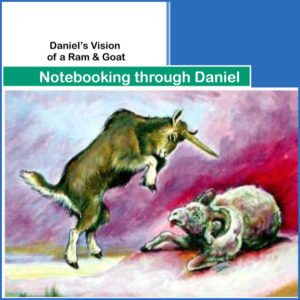
Chapter 8 in the book of Daniel tells of Daniel’s vision of a two-horned ram destroyed by a one-horned goat (a possible allegory for the transition from the Persian to the Greek eras in the Near East), followed by the history of the “little horn”, which is Daniel’s code-word for the Greek king Antiochus Epiphanes.
This notebooking resource has been designed for students to write about, give a report of, and comment on chapter 8 of the book of Daniel.
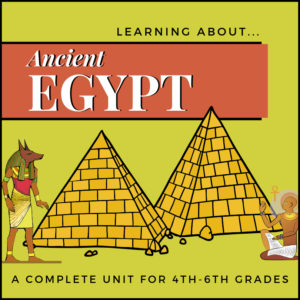
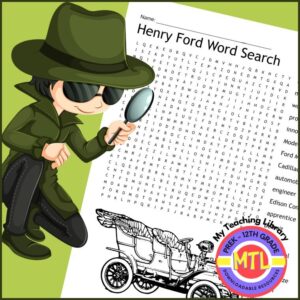
Print-n-go, word search puzzle for students with a Henry Ford theme! Use during a study of Henry Ford, inventors, American entrepreneurs, famous Americans (or) as a ready-to-use worksheet anytime of the year for early finishers or as a bellringer!
Answer key provided
Why word puzzles? Studies have shown that word search and other word puzzles can help improve memory, focus, vocabulary, word recognition, pattern recognition, and overall mental acuity!
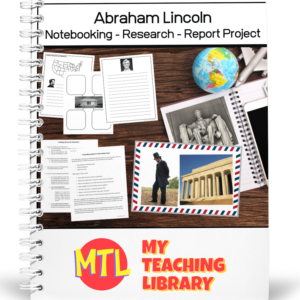
Studying the 16th President of the United States, Abraham Lincoln? Wanting your students to develop their ability to research, organize, write and create a complete project? This interactive, hands on, resource is one that can be used in Social Studies, History and Language Arts classes and is designed to be either teacher led or student centered – whichever you prefer! This project resource can be assigned individually or to cooperative groups. You can give students as much latitude as you want – or – you can be very deliberate in what and how you assign students to use the pages.
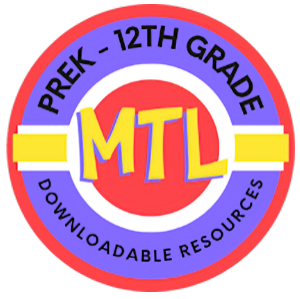

Reviews
There are no reviews yet.